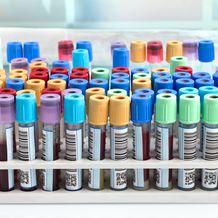Patient resources Iron Infusions

Important information for all patients
Please read prior to admission
PDF file for download/print
Intravenous (IV) iron infusions
This leaflet answers some common questions about IV iron infusions. It does not contain all available information and does not take the place of talking to your doctor about why IV iron has been recommended for you.
Why is iron important?
Our bodies need iron. Iron is used to make haemoglobin-the part of our red blood cells that carries oxygen around our body. It is also important for muscle strength, energy and good mental function. If your iron levels are low this may make you feel tired and unable to do normal activities. As the amount of iron in the body falls even lower, the haemoglobin level drops below normal. This is known as “iron deficiency anaemia”.
What is an IV iron infusion?
“Intravenous” or “IV” means giving something directly into the blood stream of the body through a vein. A needle placed into a vein (usually in the back of the hand or arm) is attached to a drip that contains iron mixed with saline (a sterile salt water solution). This fluid is slowly “dripped” into the vein and mixes with the blood in your body. Sometimes two iron infusions (given at least one week apart) are needed to fully top up iron stores.
Why might I need IV iron?
The most common way to treat iron deficiency anaemia is to take iron by mouth as a tablet or liquid. This works well for most people and is usually tried first.
IV iron might be needed if you are:
- Unable to tolerate iron by mouth
- Unable to absorb iron through the gut
- Unable to absorb enough iron due to the amount of blood the body is losing
- In need of a rapid increase in iron levels to help avoid important complications or blood transfusions (such as, before or after major surgery, significant anaemia late in pregnancy or after child birth)
- Not responding to iron tablets
- Have chronic heart or kidney failure
Your doctor should explain why you need IV iron any alternative options.
Are there any side effects with IV iron?
Generally, when side effects do occur, they are mild and settle down on their own. The most common side effects are temporary and include:
- Headache, feeling sick, muscle or joint pain
- Changes in taste (eg. you may experience a metallic taste in your mouth)
- Changes to blood pressure or pulse
Skin staining (brown discolouration) may occur due to leakage of iron into the tissues around the needle (drip) site. This is not common, but the stain can be long lasting or permanent. Inform your nurse straight away of any discomfort, burning, redness or swelling at the needle (drip) site.
Although very uncommon, some people may have a serious allergic reaction. In rare cases, this can be life threatening. You will be closely monitored during your iron infusion, and for one hour after.
Sometimes side effects (eg, headache, muscle or joint pain) can start 1 to 2 days after your infusion. Mostly they will settle down by themselves over the next couple of days. If they worry you or interfere with your daily activities, contact your doctor for advice.
If you have chest pain, trouble breathing, dizziness or neck/ mouth swelling, please seek urgent medical attention/ call an ambulance (dial 000).
Before you have IV iron
Tell your doctor if you:
- Are pregnant or trying to get pregnant
- Have a history of asthma, eczema or other allergies
- Have had a reaction to any type of iron injection or infusion in the past
- Have a history of high iron levels, haemochromatosis or liver problems
- Are taking any medications (including over the counter or herbal supplements)
What happens on the day?
Have your breakfast/lunch. You do not need to fast for an iron infusion.
Take all of your regular medications.
The iron will be given through a small IV drip, which will be placed in your arm.
If you experience any side effects, inform your nurse immediately.
You can drive home after the infusion, and resume all of your normal activities (unless there is an unexpected reaction).
Evidence suggests that iron tablets taken a week following your iron infusion may not be absorbed. It is recommended you check with your doctor if you should continue to take iron tablets during this time.
Where can I find more information?
You can read more at https://mytransfusion.com.au
Related Content

Patient Information & Safety- Admission Information
Information about patient admission at St Vincent's Private Hospital Toowoomba.
Read More
Blood Transfusions
Information for patients having blood transfusions at St Vincent's Toowoomba.
Read More
Patient Information & Safety- Healthcare Associated Infections
Information about healthcare associated infections.
Read More
